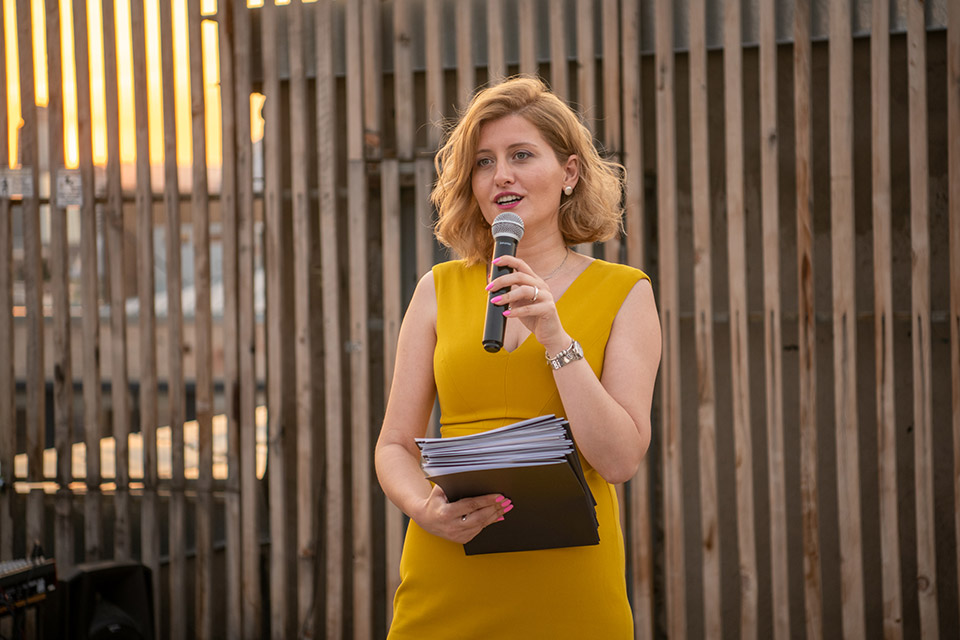Take five: “Women have done a lot for confidence-building”
Date:

UN Women, with the support of the UK Government, is working actively on the engagement of women and young people in peace processes, within the framework of the “Accelerating Implementation of the Women, Peace and Security Agenda in Georgia” project, and it is implementing various initiatives to this end. Eliko Bendeliani, Chair of the Center for Peace and Civic Development, a non-governmental organization, not only participates in these activities but also constantly strives to involve more women and young people in the peace process.
Based on your experience, to what extent are women in Georgia interested in participating in peace processes?
When I go to a conflict-affected region and meet people there, it is evident that more women attend the meetings. They are always proactive; boldly discussing ways to solve problems. But then in practice, they are limited to working on technical issues rather than being engaged directly in the process.
Nevertheless, there are successful examples of women’s involvement in peace initiatives that are unfortunately not well known to the public. Traditionally, they fear that publicizing the process might harm the outcome, so they refrain from speaking out. However, in recent years, women have done a lot for confidence building and have made valuable contributions to the peace process through their own activities.
In your opinion, what is the reason for women’s low participation and the limited recognition of their contribution to the peace process?
Regrettably, stereotypes reinforcing the notion that conflict and peace processes are not suitable for women are still strong in Georgia. While recognizing the need for women to participate in peace and conflict resolution processes, there are no mechanisms are in place to encourage their participation. They are either not represented or are underrepresented in decision-making positions. Therefore, they are not actors effecting change or influencing real political decision-making.
In addition, it’s important to note that training programmes on peace and conflict issues, which would prepare and empower women to participate in relevant processes, are less available.
What common challenges would you single out for young women who currently represent different sides of a conflict in peace processes?
Today, the biggest problem for young women on different sides of conflict is the lack of direct communication channels. Those working on peace are quite active, however they have never had direct communication. Social media is a good opportunity, but, at the same time, it is full of challenges. The problem is that the most active in the digital space are those people with negative and aggressive attitudes, unwilling to contribute to the effective implementation of peace processes.
On our side, the problem is a lack of in-depth information, which is often evident in meetings, so I think it is important to acquire more knowledge, formulate structured opinions and critically rethink existing perceptions.
Another noteworthy factor is that the young people involved in negotiations neither know one another nor have the experience of living together. Unfortunately, there was a period after conflict when communication between communities was minimal. Then, since new generations emerged, estrangement increased and the need to overcome it became apparent.
What steps would mitigate the challenges you have identified?
Systematic work to empower women is very important. Women need their role to be recognized – and civic, political and economic empowerment initiatives need to be supported.
At the same time, in order to ensure women’s political participation, targeted interventions and the implementation of such projects are needed, which will be aimed at their participation in political and social processes.
In my view, the most important thing today is to prove to women that they have confidence and can make a difference. They have the potential to create a different, peaceful and socio-political agendas. They need more opportunities in the political arena to become true decision-makers, and their participation should not be merely symbolic or a façade.
How high is the sensitivity of young people to conflicts and peace processes?
Young people from different groups perceive the topic of conflict with varying levels of severity. For those living around the dividing lines, this issue is related to daily security, and for IDPs, of feelings overtaking their lives to varying degrees of severity – so, usually, their motivation is also higher at times.
In general, the younger generation is the notable part of society that is most interested in receiving in-depth information and has a greater readiness – even for different narratives. This fact is evident in the growing demand for courses, programmes and training on conflict and peace processes. There is a great desire of young successful people, working in different institutions, to fill the information vacuum and get involved in these processes. This is very important, because if we do not think together about the solution, it will be difficult to make progress.